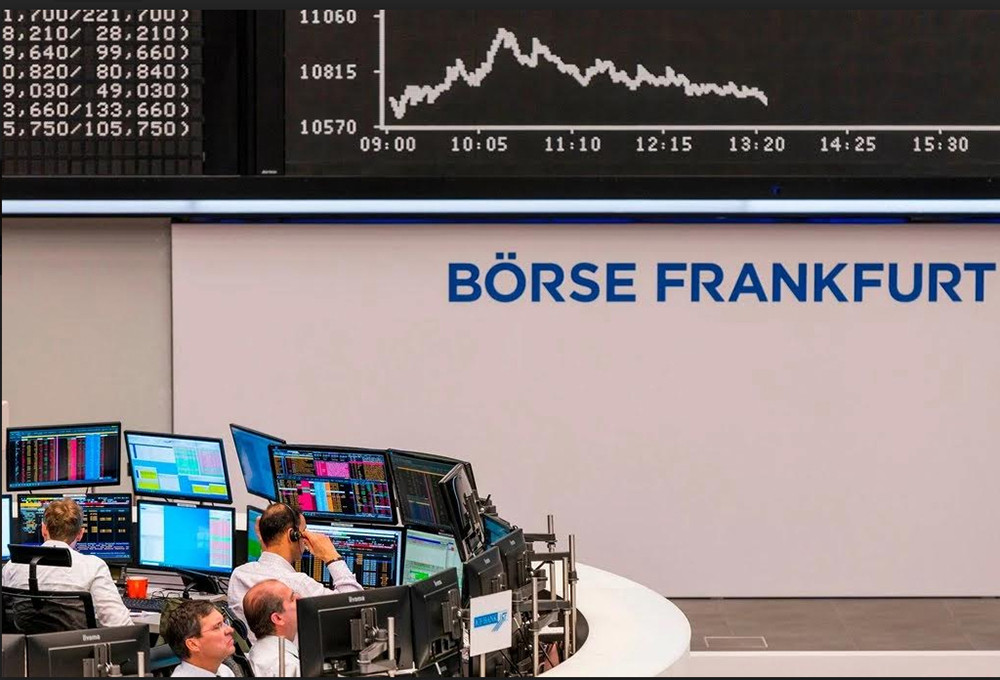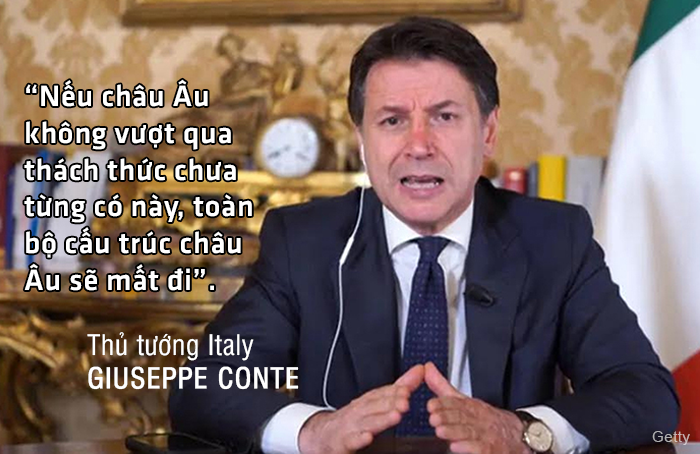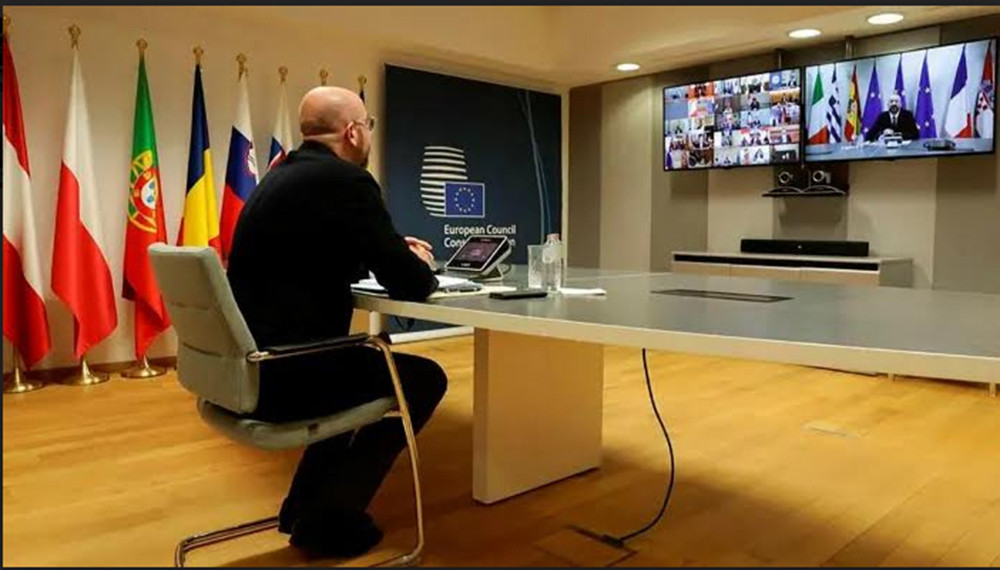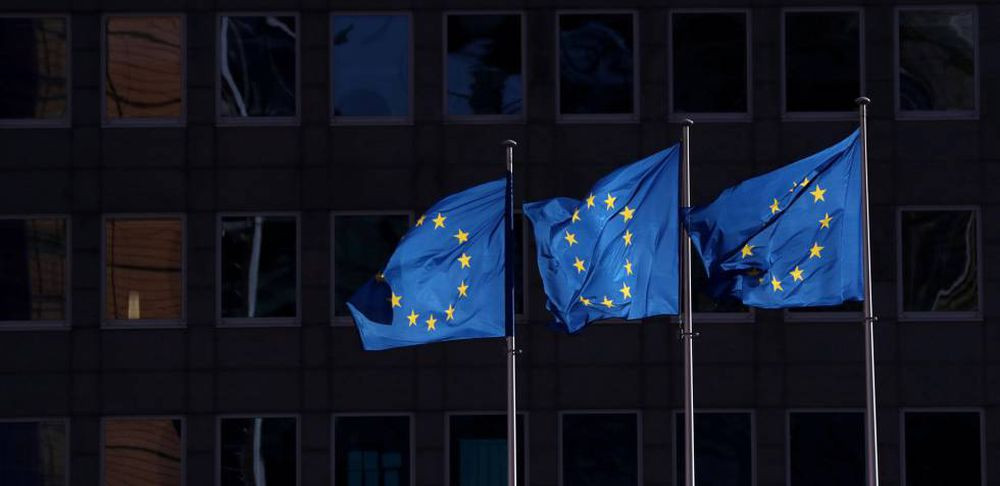The 'Old Continent' EU has another decisive battle besides Covid-19!
(Baonghean) - Currently, all European governments are focusing all their efforts on fighting the Covid-19 epidemic. More than 20,000 people on the continent have died from the epidemic. But behind the scenes, an important battle for the future of the "old continent" is also taking place. "If Europe does not overcome this unprecedented challenge, the entire European structure will be lost" - the Italian Prime Minister warned.
Alarm bells
The death of the Finance Minister of the state of Hesse (Germany) Thomas Schaefer, was not caused by the Corona virus but by the pressure of this virus. Local authorities believe that Mr. Schaefer committed suicide (on March 28) because he was worried about not being able to bear the consequences that Covid-19 caused to the economy. This is a shocking news for German and European officials and is a warning bell for a terrible crisis about to hit this continent.
 |
| Hesse State Finance Minister Thomas Schaefer committed suicide because he was worried about the economic consequences of Covid-19. Photo: Twitter |
The economy has been one of the most sensitive topics in modern Europe. The sovereign debt crisis in the Mediterranean countries, the largest refugee influx since World War II and the story of Britain leaving the EU (Brexit) have disrupted and caused huge losses for European financial centers but have not "sunk" them.
However, while the “old wounds” have not yet healed, Europe has been hit hard by the Covid-19 pandemic, making the “old continent” weaker than ever. There is no doubt that the virus is threatening the survival of the euro and perhaps of the European Union (EU) itself.
The economic toll of the pandemic on European economies is incalculable at this stage, as there are so many variables. No one knows how long the pandemic will last and the lockdown policies of many countries in the bloc will continue for several more weeks or months. Not to mention, Europe is not exempt from the "spiral" of the economic recession in the US, China and other parts of Asia.
 |
| European stock markets plunged as Covid-19 devastated economies. Photo: AFP |
So it’s no surprise that even the most optimistic economists are having trouble making concrete predictions. Some predict a “V-shaped” recovery, meaning the European economy bounces back strongly after the current slump, while others believe the recovery will be “U-shaped,” meaning it takes some time for the economy to pick up again after the pandemic.
Whatever the scenario, it is clear that Europe is facing an unprecedented challenge. Initial statistics from individual EU member states suggest that the economic impact of this crisis will be huge. For example, in the past few days, the French statistical agency revealed that the country's economic output has fallen by 35% and that the Covid-19 crisis this year will reduce France's gross domestic product (GDP) by 3% if the country's lockdown lasts for one month, and by 6% if it lasts for two months.
Meanwhile, other research figures also show that, for the remaining members, most current estimates show a 15% decline in GDP in the second quarter of this year and about 10% for the whole of 2020 - figures equivalent to those recorded in the darkest days of the Great Depression in the 1930s and about 10 times worse than the economic decline in the 2007-2008 financial crisis.
 |
Seeds of separation?
The negative economic impact of the pandemic is undeniable. But how to overcome it and how to coordinate is a difficult problem for Europe at the moment. The real choice that Europe must face is "to live and die together" or each person finds a different direction.
In early March, when the epidemic in Italy became serious and showed signs of spreading rapidly to many other countries and becoming uncontrollable, many countries rushed to take action on their own. Germany and France banned the export of medical protective goods, Austria, Hungary, the Czech Republic, etc. unilaterally closed their borders, causing the EU's iconic Schengen Agreement to be considered temporarily "dead", and the circulation of goods and relief aid to epidemic areas, especially Italy, encountered countless difficulties.
But the lack of unity in finding comprehensive solutions across the bloc in the coming days is even more serious. Just look at the atmosphere at the European Council's online meeting on March 26. Italian Prime Minister Giuseppe Conte admitted that his and German Chancellor Angela Merkel's positions were "more than disagreement, but a strong and open confrontation".
 |
| European leaders attended an online meeting on March 26 but failed to reach an agreement. Photo: AP |
Germany, the EU's "policeman", is tasked with ensuring other countries respect their obligations and responsibilities in financial agreements and do not want to break the rules of the union. Berlin believes that, in the current context, the EU can activate the "European Stability Mechanism", a 400 billion euro fund created after the financial crisis more than 10 years ago to support the borrowing needs of countries in the bloc. In addition, there is another bailout package worth 750 billion euros that the European Central Bank has committed to spend on buying bonds of eurozone member states.
However, access to these funds comes with strict conditions, such as requiring member states to keep their budget deficits under 3% of gross domestic product (GDP) and public debt under 60% of GDP. However, for Italy or France, public debt was already at 130% and 100% even before the pandemic and could now be much higher.
That is why last week, the leaders of France, Italy, Spain, Portugal, Ireland, Luxembourg, Slovenia, Belgium and Greece called for the creation of a “common debt instrument”, at the suggestion of the Italian prime minister, called “Coronabonds”. These bonds would be guaranteed by all EU member states, with no strings attached.
Of course, Germany does not accept this idea. Chancellor Merkel in the meeting on March 26 said no up to 4 times when her Italian counterpart raised it. The Netherlands, Austria or Finland also support Germany's point of view with concerns that neighboring countries will exploit the crisis to promote a series of public debts, thereby weakening the common euro currency...
 |
| EU faces challenges of unity. Photo: Getty |
The increasingly bitter war of words shows that the EU is deeply divided over how to choose a direction for its common economy in the context of the devastation caused by Covid-19. “The seeds of disintegration are back,” warned former President of the European Commission and one of the chief architects of the modern EU, Jacques Delors.
Mr. Jacques Delors also said that “the lack of solidarity is a deadly danger to the survival of the EU”. Obviously, this is first and foremost a time when the prestige and existence of Europe is being questioned. If Europe is just a common market when everything is fine, it will no longer have any value. Therefore, more than ever, Europe needs a “strong medicine” and that medicine can only come from the solidarity of the whole bloc in the current period of crisis.
